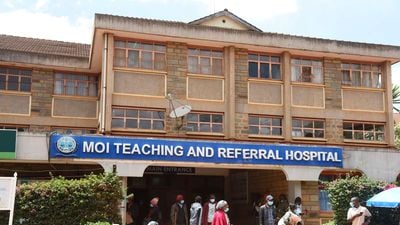In a move aimed at addressing the gap in healthcare services for children with special needs, Kenya has announced plans to establish a specialized brain hospital for children.
The facility, named the Wezesha Watoto clinic, is set to open its doors to the public by mid-next year at the Moi Teaching and Referral Hospital.
The clinic will provide advanced treatment options and diagnostic services for children with disabilities, focusing on neurocognitive assessment, neurophysiology assessment, occupational therapy, and treatment.
It aims to cater to the general public from all counties in Kenya, particularly those who have limited access to affordable healthcare options.
Mark Nyalumbe, Chairperson for the Kenya Medical Psychology Association, emphasized the clinic’s role as a referral facility for low-income populations, who often struggle to afford treatment at private hospitals.
The Wezesha Watoto clinic will adopt public hospital rates and integrate the National Health Insurance Fund (NHIF), aligning with the services offered by private facilities but at more affordable prices.
Currently, Kenya has several children’s hospitals, including Gertrude’s Children’s Hospital, MP-Shah Hospital, and the Karen Hospital. However, consultations at these institutions can cost over Sh4,000.
Dr. Nyalumbe highlighted the importance of the new specialized clinic, stating, “The neurodevelopment clinic will be more of a pediatric [facility], looking at children with different developmental disorders, especially around the brain neurons. Through implementing the clinic, we will be able to expand care to more people and the vulnerable who couldn’t afford it before.”
The Wezesha Watoto clinic aims to enhance treatment availability by providing additional clinical space and staffing, transitioning from a weekly clinic to a daily operation.
Additionally, the facility will serve as a center for excellence in training and innovation, upskilling healthcare workers to provide specialized care and conduct research in children with disabilities. Rehabilitation facilities will also be available to patients.
Dr. Nyalumbe noted that the timing of this development is crucial, as there is a long waiting list for children and families seeking healthcare at the outpatient pediatric neurology clinic in western Kenya.
He explained, “The outpatient pediatric clinic is usually open just one day a week because the limited number of healthcare workers are overburdened with service at hospitals. Diagnosis and treatment for children can be difficult.”
Childhood disability has become a significant concern in Kenya, affecting millions of children worldwide.
The Ministry of Health reports a 13.1 percent prevalence of childhood disability in children aged 3 to 21 years in Kenya.
Globally, the World Health Organization (WHO) estimates that 1.3 billion people, or 16 percent of the global population, experience significant disabilities.
The establishment of the Wezesha Watoto clinic brings hope to parents of children with various disabilities, as they will now have access to specialized care options.
In addition to addressing language, speech, motor skills, behavior, memory, and learning challenges, children with neurodevelopmental disorders often face stigma, isolation, and neglect.
Dr. Nyalumbe assured that the facility has acquired culturally sensitive equipment to provide appropriate care tailored to the Kenyan population.
With the clinic’s imminent opening, parents can look forward to improved healthcare services and a brighter future for their children.











